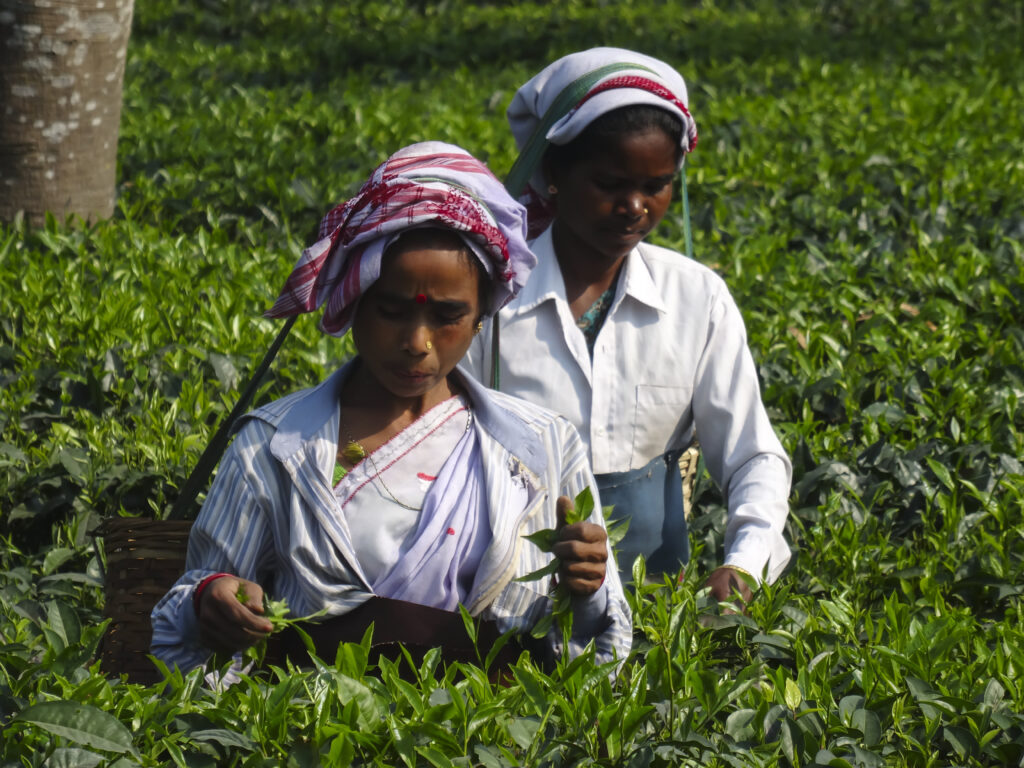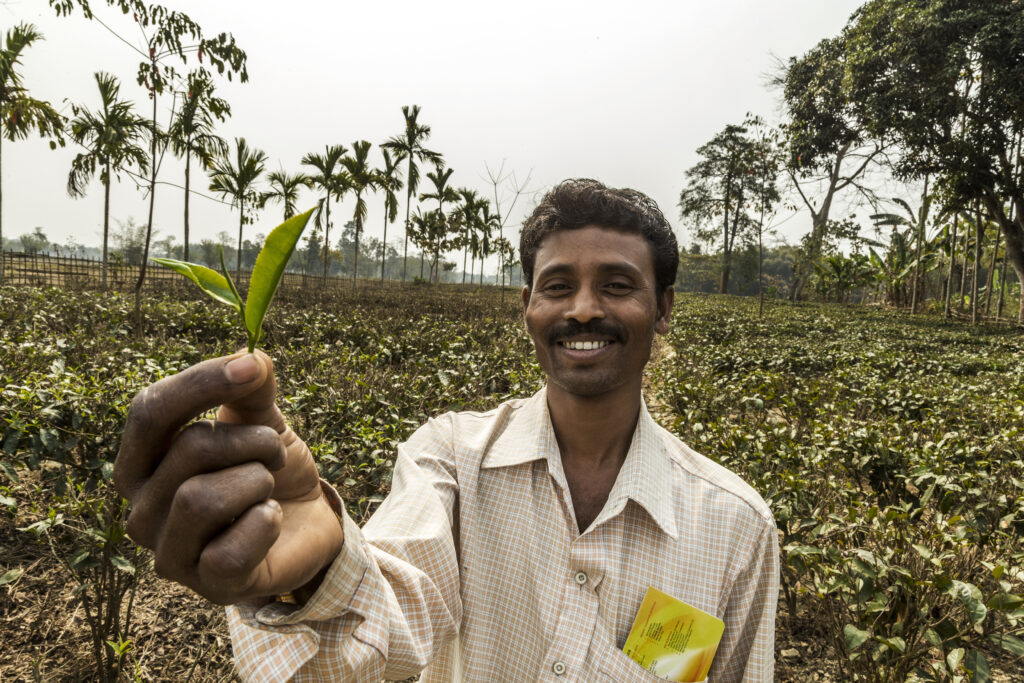This project is intended to enable plantation workers to escape total dependency through small family tea gardens. A family can quadruple their income by harvesting from their own garden. This enables the children to go to school and forms small reserves for emergencies. The small garden is harvested as a part-time job, while employment in the garden remains basic security.
Most of the people in Assam’s well-known tea plantations work for a pittance, which is barely enough for food and not for school, medical care, etc. We have supported a program to make people their own tea producers for a self-determined life, through microcredits and training in organic tea cultivation. The participants organize themselves in small cooperatives to sell the tea.
Assam is the largest contiguous tea-growing region in the world, with over 7 million people living on the plantations and producing 13% of the world’s harvest.
The tea gardens look idyllic, but for most tea garden workers they are still a place of exploitation today. Generations after being abducted as forced laborers by the British, the Adivasi continue to live in the poorest conditions. The vast majority of children do not go to school. Girls in particular help out on the plantations from an early age. The pickers are paid by quantity and have to pick a minimum quantity in order to receive any wages at all. Therefore, although it is officially forbidden, their children often help them so that they earn more.
The following measures were implemented as part of the project:
- Expansion of an office and tea training center in Thorajan
- Extension of a tea demonstration garden in Golaghat
- Construction of a small training building on the site of the demonstration garden
Project sponsor: Stiftung Childaid Network
Project partner: Don Bosco
Funding year: 2014 – 2016
Project No.: 28-14ro


